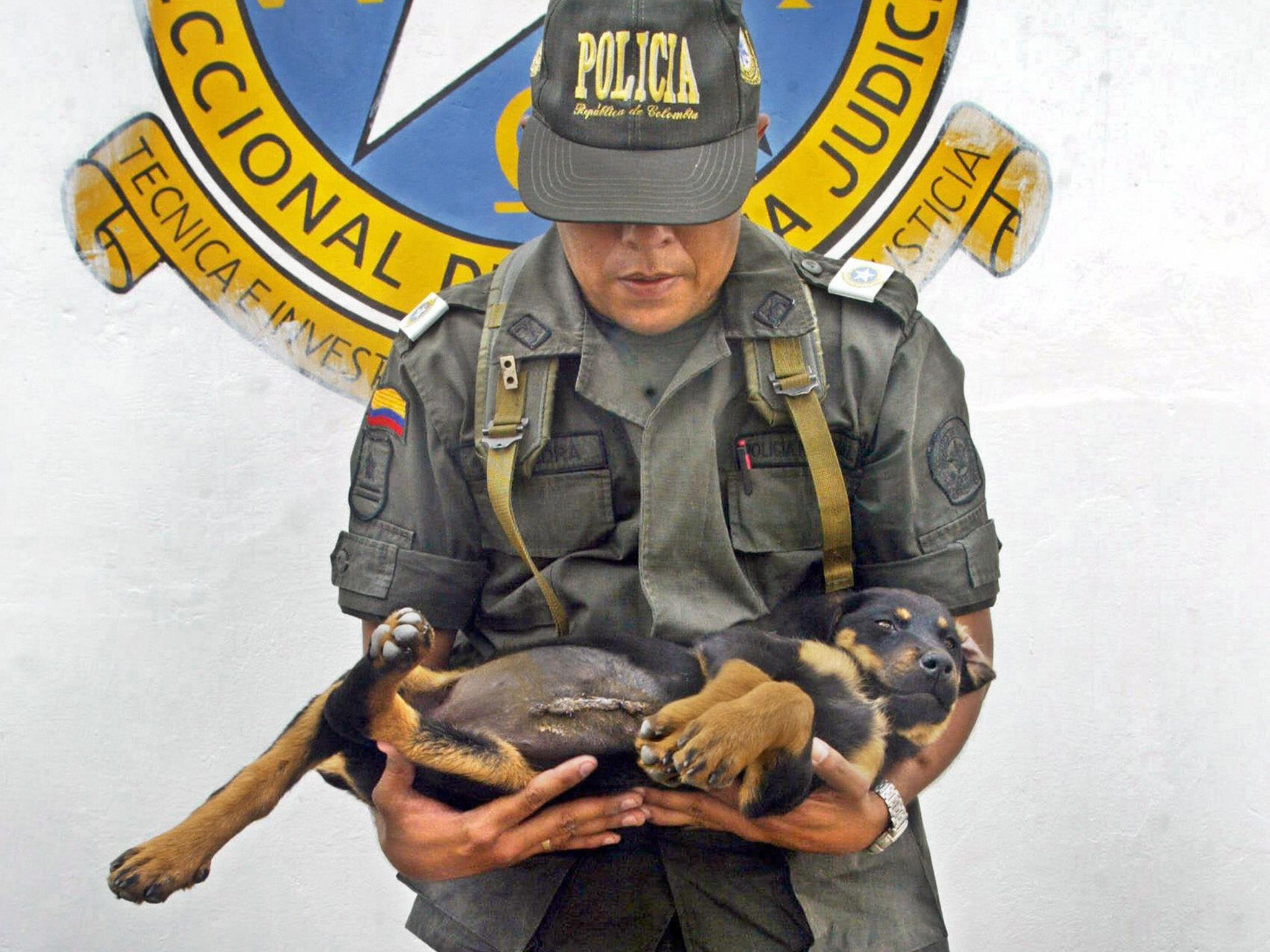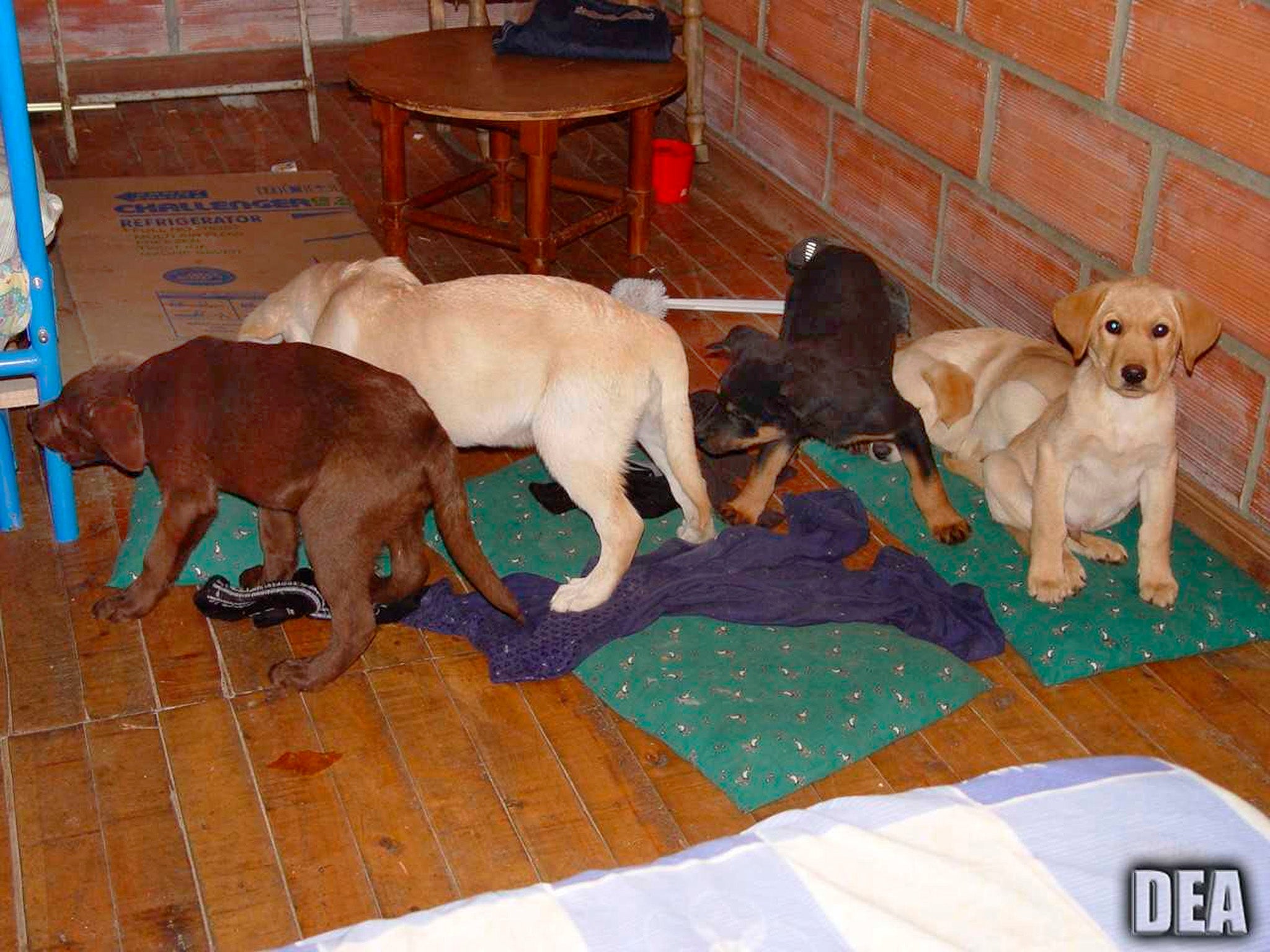Colombian vet jailed for implanting liquid heroin in puppies to smuggle to US
Andres Lopez Elores was on the run for 10 years before he was caught in Spain

Your support helps us to tell the story
From reproductive rights to climate change to Big Tech, The Independent is on the ground when the story is developing. Whether it's investigating the financials of Elon Musk's pro-Trump PAC or producing our latest documentary, 'The A Word', which shines a light on the American women fighting for reproductive rights, we know how important it is to parse out the facts from the messaging.
At such a critical moment in US history, we need reporters on the ground. Your donation allows us to keep sending journalists to speak to both sides of the story.
The Independent is trusted by Americans across the entire political spectrum. And unlike many other quality news outlets, we choose not to lock Americans out of our reporting and analysis with paywalls. We believe quality journalism should be available to everyone, paid for by those who can afford it.
Your support makes all the difference.A Colombian veterinarian who surgically implanted liquid heroin in puppies has been sentenced to six years in prison for conspiracy to import the drugs to the US.
Between 2004 and 2005, Andres Lopez Elorez raised the animals on a farm in the city of Medellín. He then placed bags of liquid heroin inside the animals on behalf of drugs cartels.
Elorez was arrested in Spain in 2015 before he was extradited to the US to face drug-smuggling charges.
A judge US District Court in Brooklyn judge has now sentenced him to six years in jail.
Prosecutor Alicia Washington, told the court that when law enforcement officials found the puppies – some already filled with heroin and others being prepared for surgery – they tried to remove the balloons from “the dogs that were still alive”.

Three puppies later died, however, after contracting viruses from the emergency operations.
Several of the dogs have since found new homes, including one Rottweiler who is now a drug detection dog for the Colombian national police, and a beagle who was adopted by a Colombian police officer, according to the Drug Enforcement Administration.
Urging the judge to hold the 39-year-old responsible for “betraying his responsibility as a veterinarian,” Ms Washington suggested as many as nine years in prison, adding, “Without his skill set these Colombian traffickers couldn’t have done what they did.”
Elorez, who pleaded guilty to the conspiracy in September, approached the judge with his hands crossed behind his back. Speaking through an interpreter, he called the five-month span 2005 when he rented the farm, raised the puppies and conducted the surgeries a “very difficult time for me”.
He added: “They were formative years for me personally and professionally.”
Court proceedings and filings show that Elorez did not work alone. Mitchell Dinnerstein, his court-appointed attorney, mentioned an unnamed veterinarian “of some influence” in Colombia, who has never been arrested in connection with the conspiracy.
That veterinarian, who had ties to drug traffickers, had mentored Elorez, securing him an internship and stipend and eventually orchestrating the puppy project, Mr Dinnerstein said.
Elorez said the mentor did “everything he could professionally to help me out, and also taught me that there was a door I should never open, but unfortunately I did open it.”
Then, on 1 January 2005, the Colombian police stormed the farm in Medellín, seizing the 17 bags of liquid heroin – 10 of which were already implanted in the puppies – totalling almost 3kg.
Elorez fled to Spain, using Venezuelan documents and settling in Galicia, where he eventually married and raised two children. He eluded authorities until 2015, assisting veterinarians and undergoing a “total transformation”, according to his attorney.
“I know I cannot justify my actions,” Elorez told the judge. “Because I have made mistakes.”
Two floors below the courtroom, jurors were deliberating the fate of Joaquín Guzmán Loera, the Mexican drug kingpin known as El Chapo, who has gained notoriety for his novel smuggling techniques.
Testimony from Guzman’s trial has detailed his systems of transporting drugs on sea vessels, in the bedding of trucks and even hidden in cans of chili peppers.
The New York Times
Join our commenting forum
Join thought-provoking conversations, follow other Independent readers and see their replies
Comments